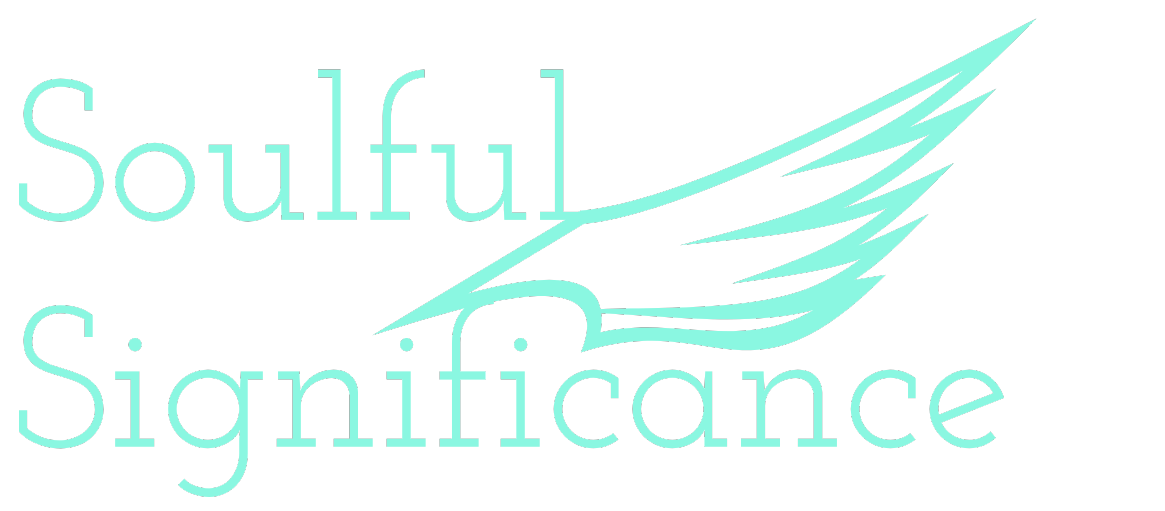Dreaming of Having Superpowers
You've always wondered what it would be like to possess superhuman abilities – to fly, to turn invisible, or to possess superhuman strength. This fascination isn't just a passing fancy; it's a window into your deepest desires and motivations. By examining the superpowers you've always dreamed of having, you'll uncover hidden aspects of yourself, from your values and fears to your strengths and weaknesses. But what drives this universal human fantasy, and what can it reveal about the person you're meant to be? As you explore this phenomenon, you'll begin to unravel the mysteries of your own potential.
At a Glance
- Childhood imagination and fear drive the desire for superpowers, revealing a deep-seated quest for extraordinary abilities and self-discovery.
- Recognizing inner strengths and courage is crucial for personal growth, as it unlocks confidence in navigating life's challenges.
- Superheroes serve as role models, embodying values like honesty, justice, and selflessness, and inspiring emulation of these traits.
- The science behind superpowers can provide valuable insights into human physiology, while the psychology of superheroes offers a deeper understanding of personality and motivations.
- Cultivating self-awareness, emotional intelligence, and resilience is key to unlocking inner potential and making a positive impact in the world.
Unleashing the Power Within Us
In light of the human quest for extraordinary abilities, having a thorough understanding is vital to explore the notion that our inner potential holds the key to revealing superpowers.
You've likely wondered if you possess hidden strengths or talents waiting to be tapped. The concept of personal growth is closely tied to this idea, as it involves recognizing and developing your inner abilities.
By acknowledging and honing your inner wisdom, you can release your full potential and discover unique strengths.
Scientific research suggests that our brains have a remarkable capacity for adaptation and reorganization, allowing us to rewire our thinking and behavior.
This neural plasticity enables you to develop new skills and abilities, effectively "leveling up" your personal growth.
By cultivating self-awareness, emotional intelligence, and resilience, you can tap into your inner wisdom, making informed decisions and charting life's challenges with confidence.
As you continue to explore and understand your inner workings, you may uncover hidden talents or abilities that could be considered superpowers in their own right.
Childhood Fantasies and Fears
Your childhood fantasies of possessing superpowers likely stemmed from a deep-seated desire to transcend human limitations and explore the unknown.
This innate curiosity is a hallmark of childhood wonder, where the boundaries between reality and fantasy blur. As you daydreamed about flying, invisibility, or superhuman strength, you were exercising your imagination and testing the limits of what's possible.
However, this fertile ground of imagination can also give rise to fearful thoughts and anxieties.
A fearful imagination can conjure up monsters, villains, and catastrophic scenarios, making you feel vulnerable and powerless. This dichotomy of childhood wonder and fearful imagination is a natural part of development, as you learn to navigate the complexities of the world and grapple with your own emotions.
Superheroes as Role Models
As you navigated the complexities of childhood, superheroes likely emerged as figures of fascination, embodying the superpowers you once fantasized about.
These characters, with their extraordinary abilities and courageous deeds, captivated your imagination and inspired a sense of hero worship. You may have idolized Superman's strength, Spider-Man's agility, or Wonder Woman's compassion, seeing in them the embodiment of values you aspired to emulate.
Superheroes also provided moral guidance, serving as role models for social behavior and decision-making.
Through their struggles and triumphs, you learned about the importance of honesty, justice, and selflessness. You saw how they balanced personal desires with the greater good, often making sacrifices for the benefit of others. This moral framework helped shape your understanding of right and wrong, influencing your relationships and interactions with others.
The Science Behind Superpowers
Superhero physiology defies explanation, but what if we could demystify their extraordinary abilities by probing the scientific principles behind them?
You might be surprised to discover that many superpowers are rooted in real-world scientific concepts.
1. Neuroplasticity limits: Your brain's ability to reorganize itself in response to new experiences and learning is remarkable.
However, there are limits to this adaptability. Understanding these limits could help you optimize your cognitive abilities and push them to new heights.
2. Genetic mutations: Some genetic mutations can result in extraordinary physical characteristics, such as enhanced strength or agility.
While these mutations are rare, studying them can provide valuable insights into human physiology and potential avenues for enhancement.
3. Environmental adaptations: Your body's ability to adapt to extreme environments, such as high altitudes or toxic conditions, is a demonstration of its remarkable resilience.
Unlocking Human Potential Limits
Human physiology's hidden reserves are waiting to be tapped.
You've likely experienced moments where you've pushed yourself beyond what you thought was possible, only to realize that your body is capable of more than you ever imagined.
What lies behind the veil of human capacity sparks the inquiry: what're the limits of human potential, and how can you access them?
Researchers have long been fascinated by the boundaries of human performance.
By studying exceptional individuals, such as Olympic athletes and Navy SEALs, scientists have begun to identify the physiological and psychological factors that contribute to extraordinary feats.
For instance, studies have shown that the human body can survive and even thrive in extreme conditions, such as high altitudes or intense physical stress.
Understanding these human limitations and potential boundaries is vital for releasing your own hidden reserves.
By recognizing your physical and mental constraints, you can develop targeted strategies to push beyond them.
This may involve training your body to adapt to new demands, or reprogramming your mind to overcome self-imposed barriers.
As you explore the frontiers of human potential, you may be surprised at what you're capable of achieving.
Overcoming Self-Doubt and Insecurity
Beyond the physiological boundaries of human performance lies another critical obstacle: the psychological hurdle of self-doubt and insecurity.
As you endeavor to tap into your full potential, you'll inevitably encounter this internal critic that questions your abilities and fuels your fears. It's vital to acknowledge and address these feelings to overcome them.
Three ways self-doubt and insecurity can hold you back:
- Fear of failure: You may hesitate to take risks or push yourself to new heights due to the fear of not meeting expectations or experiencing failure.
- Negative self-talk: Your inner critic can be ruthless, filling your mind with thoughts of inadequacy and incompetence, making it difficult to muster fearless confidence.
- Analysis paralysis: Self-doubt can lead to overthinking and indecision, causing you to miss opportunities and stagnate in your growth.
To overcome self-doubt and insecurity, you must learn to recognize and challenge these negative patterns.
Empathy and Understanding Superpowers
Self-awareness sparks a profound appreciation for the intricate web of emotions and experiences that connect us all, and empathy emerges as a superpower that allows you to navigate this complex landscape with precision.
By recognizing your own emotions and thought patterns, you develop a deeper understanding of others'. This Emotional Intelligence enables you to respond with compassion and tact, fostering harmonious relationships and resolving conflicts more effectively.
Through Compassionate Communication, you can create a safe space for others to open up and share their feelings.
By actively listening and acknowledging their perspectives, you build trust and facilitate meaningful connections. Empathy becomes a powerful tool for de-escalating tensions, mediating disputes, and promoting mutual understanding.
As you hone this superpower, you'll find that even the most complex social dynamics become more manageable. You'll be better equipped to navigate diverse perspectives, resolve conflicts, and cultivate a sense of community and cooperation.
Superpower Archetypes and Symbolism
What lies at the core of your superpowers? It's not just a flashy ability or an extraordinary strength, but a symbolic representation of your inner self.
Superpower archetypes and symbolism reveal the hidden dynamics of your psyche, showcasing your desires, fears, and motivations.
- The Protector: Symbolizing a strong sense of responsibility and a need for control, this archetype is often associated with superpowers like super strength, invincibility, or the ability to manipulate the environment.
- The Avenger: Representing a desire for justice and revenge, this archetype is linked to superpowers like telekinesis, elemental control, or the ability to manipulate technology.
- The Savior: Embodying a need for validation and a sense of self-importance, this archetype is connected to superpowers like healing, teleportation, or the ability to communicate with animals.
These symbolic meanings and power dynamics can provide valuable insights into your personality, helping you better understand your strengths, weaknesses, and motivations.
Real-Life Superheroes Among Us
Explore into the world around you, and you'll discover that real-life superheroes are more common than you think.
They're not donning capes or tights, but they're making a significant impact in their communities. These hidden heroes often maintain secret identities, not to conceal their true selves, but to avoid drawing attention away from their selfless acts.
They're everyday people who've chosen to dedicate their lives to helping others, often at personal cost.
Analyzing their behavior, you'll find that they share certain traits, such as empathy, courage, and a strong sense of justice.
They're not motivated by personal gain or recognition, but by a genuine desire to make a positive difference. You might find them working in disaster relief, fighting for social causes, or simply lending a helping hand to those in need.
The Dark Side of Superpowers
As you celebrate the selflessness of real-life superheroes, a contrasting reality lurks in the shadows.
The allure of superpowers can have a darker side, one that's often overlooked in our fascination with extraordinary abilities. You may wonder, what happens when power and responsibility aren't balanced?
The dark side of superpowers reveals itself in:
- Power corruption: Unchecked power can lead to abuse, as individuals become drunk with their abilities and lose sight of their moral compass.
- Moral ambiguity: With great power comes the potential for moral gray areas, making it difficult to distinguish right from wrong.
- Unintended consequences: Even with the best intentions, superpowers can have unforeseen effects, causing harm to innocent bystanders or the environment.
It's essential to acknowledge these risks, recognizing that superpowers, in the wrong hands, can be a recipe for disaster.
Ethical Dilemmas of Superpower Use
When exercising superpowers, you'll inevitably face situations where your actions have far-reaching consequences, forcing you to confront the ethical dilemmas of superpower use.
As you wield immense power, you'll be torn between personal interests and moral obligations. The weight of responsibility will settle heavily on your shoulders, making every decision a critical one.
Power corruption is a real risk, as the temptation to abuse your abilities for personal gain or to impose your will on others can be overwhelming.
You'll need to constantly question your motivations and assess the potential outcomes of your actions. The line between heroism and despotism is thin, and crossing it can have disastrous consequences.
To navigate these complexities, you'll need to develop a strong moral compass and adhere to a strict code of ethics.
This means considering the long-term effects of your actions, respecting the autonomy of others, and being transparent in your decision-making processes.
Superpowers in Popular Culture
One need only glance at the array of superhero movies, TV shows, and comic books to recognize the pervasive influence of superpowers in popular culture.
This phenomenon speaks to the cultural significance of superpowers, tapping into our collective imagination and desires.
Superhero tropes, such as the origin story, the superhero costume, and the battle between good and evil, have become ingrained in our cultural consciousness.
Some notable examples of superpowers in popular culture include:
- The Avengers franchise, which has grossed billions of dollars worldwide, demonstrating the widespread appeal of superhero narratives.
- The X-Men comic book series, which explores themes of identity, prejudice, and social justice, highlighting the cultural relevance of superpowers.
- Superman, an iconic superhero who's been a cultural icon for over 80 years, symbolizing truth, justice, and the American way.
The Psychology of Superhero Worship
Behind the allure of superpowers lies a complex psychological landscape, where our fascination with heroes and their extraordinary abilities reveals more about ourselves than we might care to admit.
You may think your love for superheroes is just a harmless hobby, but it can actually be a window into your psyche.
Your superhero obsession might be a form of psychological escapism, a way to temporarily leave behind the stresses and mundanity of everyday life.
Research suggests that our attraction to superheroes often stems from a deep-seated desire for control, power, or a sense of invincibility.
You might identify with a particular hero's struggles or values, which can provide a sense of comfort and validation.
In addition, the fantasy world of superheroes offers a safe space to explore complex emotions and moral dilemmas, allowing you to process difficult feelings in a more controlled environment.
Finding Inner Strength and Courage
Many of us turn to superheroes as a source of inspiration, and for good reason: they embody the qualities we aim to develop in ourselves, such as inner strength and courage.
You may not have superhuman abilities, but you can cultivate these essential traits to become a better version of yourself.
To find inner strength and courage, consider the following:
1. Self-reflection: Identify your values and beliefs to develop a strong moral compass.
This will guide your decisions and actions, even in the face of adversity.
2. Resilience training: Develop coping skills to handle stress, anxiety, and uncertainty.
This will help you bounce back from setbacks and stay focused on your goals.
3. Personal growth mindset: Embrace challenges as opportunities for growth and learning.
This mindset shift will help you build confidence and develop a sense of purpose.
Becoming the Hero We Need
In your pursuit of self-improvement, you've likely encountered a pivotal moment where you realized you're capable of making a positive impact.
This epiphany can be viewed as a superhero origin story, where you've discovered your inner strength and courage. As you continue on this path, it's vital to establish a moral compass that guides your actions. This internal navigation system helps you make decisions that align with your values, ensuring you're making a positive difference.
To become the hero we need, you must cultivate a strong sense of self-awareness.
Recognize your strengths and weaknesses, and acknowledge areas where you need improvement. By doing so, you'll develop a deeper understanding of your motivations and behaviors. This self-reflection will enable you to make informed choices, leading to a more purpose-driven life.
As you refine your moral compass, you'll become more confident in your ability to make a positive impact, ultimately becoming the hero we need. By embracing this role, you'll inspire others to do the same, creating a ripple effect of kindness and compassion.
FAQs
Can Superpowers Be Used for Personal Gain and Profit?
When possessing extraordinary abilities, you'll face a pivotal dilemma: can you use them for personal financial leverage? This raises moral ambiguity, as exploiting powers for gain may compromise safety and ethics, forcing you to weigh benefits against potential harm.
Are Superpowers Limited to Physical Abilities Only?
When examining extraordinary capabilities, you'll discover that they're not restricted to physical abilities only. In fact, mental abilities, such as telepathy and mind control, exist alongside energy manipulation, like telekinesis, demonstrating that superpowers can manifest in diverse forms.
Can Animals Have Superpowers Too?
You consider whether animals can possess extraordinary abilities, and science suggests they can, as many species exhibit remarkable senses, like echolocation or infrared vision, which could be viewed as superpowers, rooted in their keen animal instincts.
Do Superpowers Come With a Price or Cost?
When you gain extraordinary abilities, you'll likely face moral dilemmas and uncover hidden consequences. You'll need to weigh the benefits against the costs, considering how your actions impact others and yourself, to guarantee responsible use and minimize harm.
Can Superpowers Be Inherited or Passed Down?
You examine the concept of inherited traits, wondering if exceptional abilities can be passed down. Research suggests that genetic predisposition plays a role, but it's unclear if superpowers can be inherited like a family legacy.

I’m Eliza Trinity, a spiritual guide and writer at SoulfulSignificance.com, where my mission is to illuminate the path of spiritual fulfillment through Christ’s teachings. With a Theology degree and a counseling background, I blend biblical wisdom with real-world insight to support those on their journey to discovering their soul’s significance.


